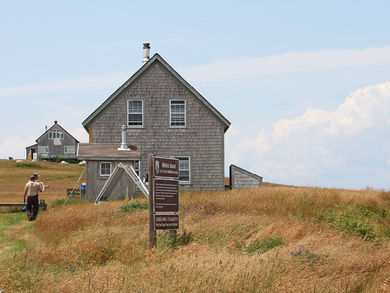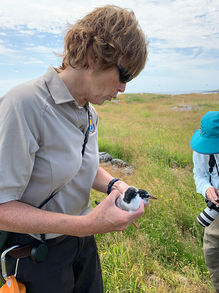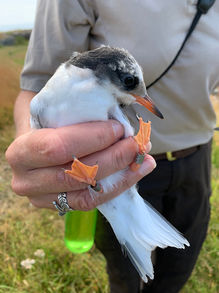
Saving Our Shorebirds



Of all migratory birds, shorebirds face the most immediate and dangerous threats to their natural habitats
The migratory distances that shorebirds travel are of the longest and most arduous of all species. Despite their incredible strength and determination, in recent decades their numbers have suffered rapid decline due to drastic increases in habitat loss by coastal development, commercial harvesting of food sources, and climate change. General coastal developments and over harvesting of food sources have challenged shorebirds' highly specified food sources and shelter. Rising temperatures and tides have wiped out large habitat regions and given false signals to what their viable breeding and migration patterns are. Of almost all the shorebird species regularly occuring in the United States, 90% are predicted to experience an increase in risk of extinction.

Working Hard to Save Our Shorebirds
Shorebirds are some of the world’s greatest travelers and great adapters of living from their ability to survive in harsh coastal conditions, and their presence helps maintain healthy coastal wetland ecosystems. Shorebird droppings fertilize the mudflats in which they feed, and also fertilize the water surrounding these areas, which helps nourish and grow phytoplankton, the foundation of the ocean's food chain.
Trust for Wildlife's high priority is shorebirds, as they are incredibly important in monitoring climate change. Our work involves a significant collaborative approach. TFW directly and through our shared partnership with Mennen Environmental Foundation supports the work of Center for Coastal Studies (Massachusetts), Maine Coastal Islands NWR, Manomet (MA), Point Blue (CA), RTPI (NY), and Cornell Lab of Ornithology (NY), all which are cooperating to accelerate field studies using new technology that provides round-the-clock scientific information critical to stabilizing species of concern. Many of these bird species are truly world travelers and help to provide critical data as climate change accelerates.
The presence or absence of shorebirds indicate to us the health of our wetlands. Wetlands are some of the most life rich ecosystems on our planet, they help keep river levels normal and filter and purify surface water. Wetlands keep rivers flowing by accepting water during storms and whenever water levels are high, then slowly releasing water when water levels become low. When wetlands are threatened, it can threaten the health of many species' water supply, including ours, as wetlands help nourish and purify underground aquifers, the source of ground water that ends up as our drinking water.


Trust For Wildlife's support of the Center for Coastal studies connects many years of collaborative environmental study and education. Point Blue on the West coast and Manomet on the East coast work in collaboration with TFW to support and connect with the outstanding work of the Western Hemisphere Shorebird Reserve Network in "Conserving shorebirds and their habitat through a network of key sites across the Americas." And lastly, mentoring students is of great importance to TFW. Our support, through the Friends of Maine Coastal Islands NWR, goes to student interns working to protect seabirds nesting on Maine Coastal islands during the Summer.





























